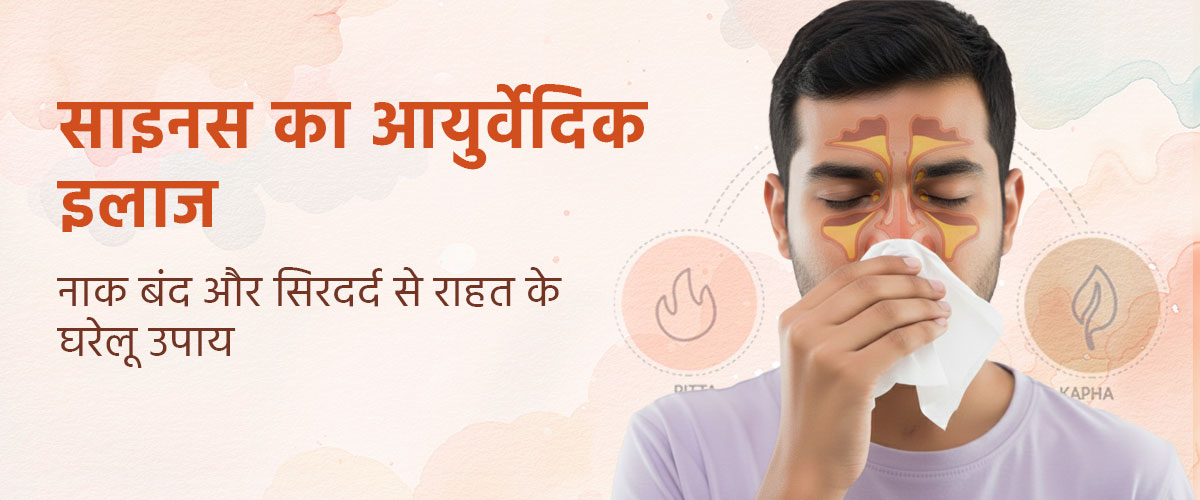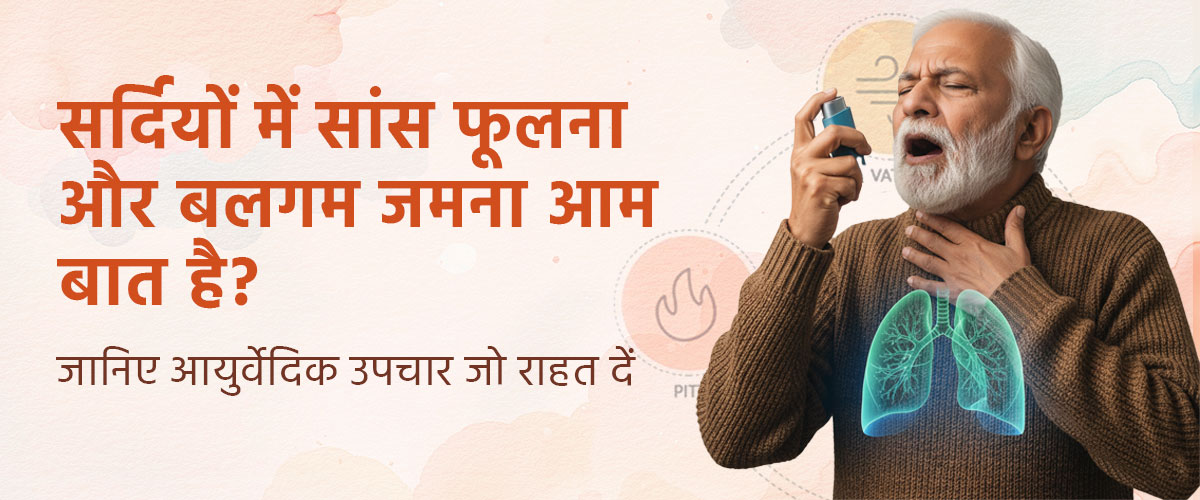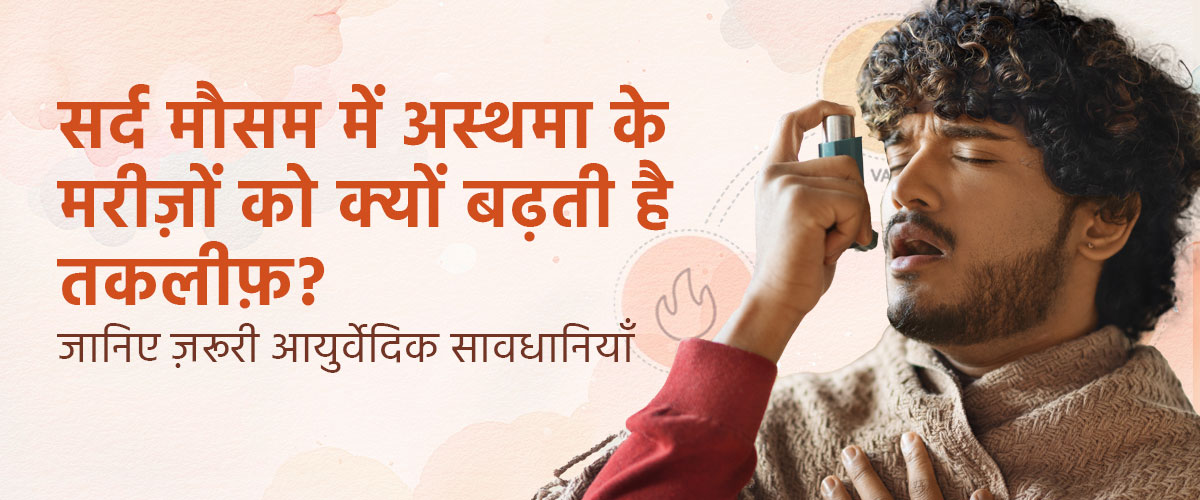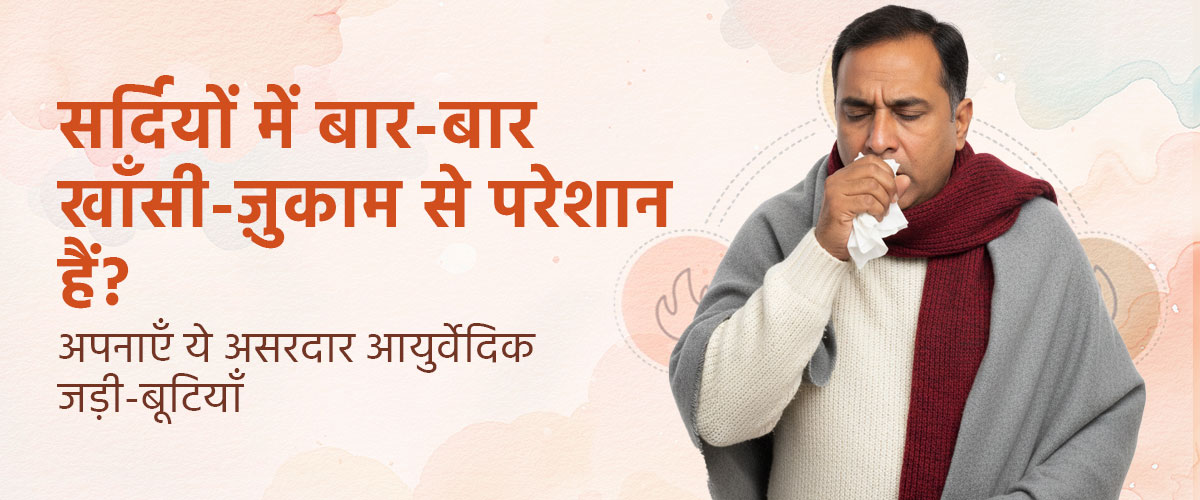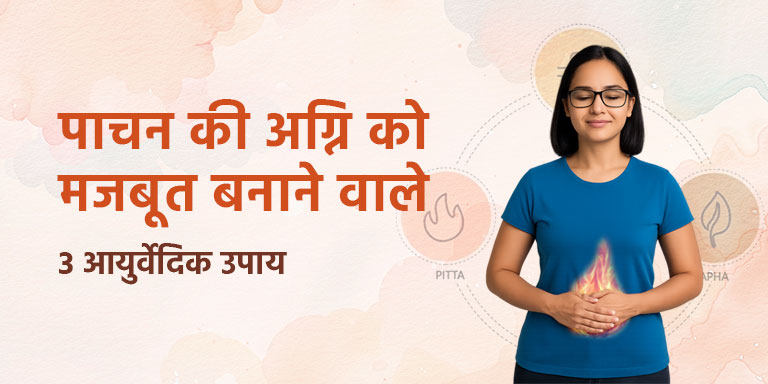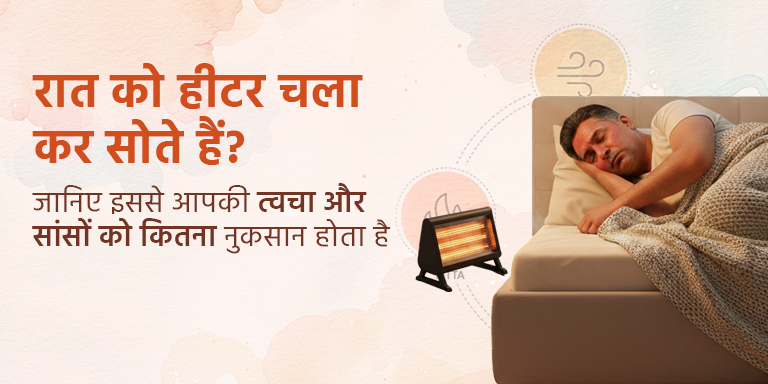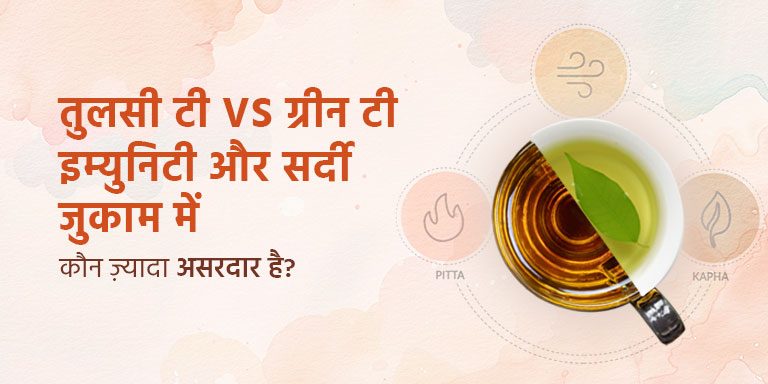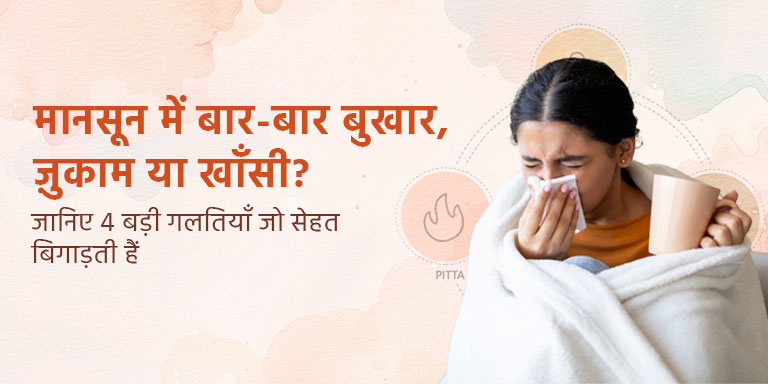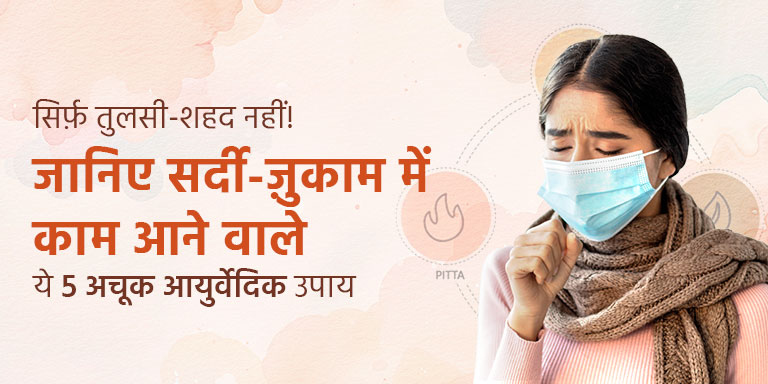In India, approximately 12% of the population is affected by kidney stones, most of them in north India, which is generally referred to as "stone belt." This high prevalence is explained by hot climates which lead to dehydration, poor diet and genetic factors.
Kidney stones or renal calculi are hard deposits of minerals and salts which develop in your kidneys. Although conventional therapies like surgery and laser therapy are available, Ayurveda offers a holistic and natural approach to treat kidney stones. Ayurvedic treatments focus on balancing your body's doshas (Kapha, Pitta, and Vata), detoxifying your system and using herbal medications to dissolve stones and prevent recurrence.
In this blog, we will understand how Ayurvedic practices and principles can help you manage and avoid kidney stones without needing invasive surgery.
What are the Common Types of Kidney Stones?
Most people fail to understand that the kind of kidney stone you have affects how it is treated and how you can stop it from returning. Therefore, it’s important to know the four common types of kidney stones :
- Calcium Stones: The most common kind are calcium stones. They're usually made of calcium oxalate or calcium phosphate. If you consume lots of high-oxalate or salty foods (like nuts or spinach) or if you don’t drink enough water, you might be at risk.
- Uric Acid Stones: These stones form when your urine gets too acidic. When you consume excessive red meat or seafood (that are filled with purines), your body may produce much more uric acid than it can handle, leading to stones.
- Struvite Stones: These stones grow rapidly and generally form following urinary tract infections (UTIs). If you don't treat it on time, they could become huge and even block your bladder or kidney.
- Cystine Stones: These are rare and generally occur in families. They happen when your kidneys leak a natural chemical called cystine into your urine.
Why is it important to know the type of stone you have?
Knowing which type of stone you are suffering with helps your Ayurvedic doctor guide you on your treatment. For example, calcium stones might need diet modifications, while uric acid stones need better hydration and lower meat consumption. Most of these types can be dissolved naturally with Ayurvedic herbs like Varuna, Punarnava and Gokshura, which we will learn about in the latter sections.
How Do You Know If You Have A Kidney Stone?
Kidney stones can come without any warning. Kidney stones generally do not show signs until they start moving within your body. And when they do, the signs are hard to ignore.
This is how you can tell if you have a kidney stone:
Severe pain: You may feel a sharp pain in your lower back side, abdomen or groin. It might come in waves and change in intensity. This pain is due to the stone moving through your urinary tract.
Burning while urinating: If urinating suddenly starts to hurt or burn, it could be because of a kidney stone irritating your urinary tract.
Blood in urine: Your urine may turn pink, red, or brown from bleeding. This happens as the stones scratch the lining of your urinary tract.
Frequent urge to urinate: You might feel like going to the bathroom much more frequently, even if just a small amount of urine comes out.
Cloudy or smelly urine: If you notice an unusual smell or colour, this might indicate infection (which occurs sometimes with stones).
Nausea and vomiting: The intense pain might make you feel sick or nauseous.
Fever and chills: These are indicators of a kidney infection which must not be ignored.
Pro Tip:
If the pain is acute, comes in waves and radiates from your back to your lower belly or hips, it is likely a kidney stone. Get it checked before it’s too late.
Can You Treat Kidney Stones Without Surgery?
The simple answer to this question is yes, you can. In fact, many kidney stones can pass by themselves with appropriate care and lifestyle modifications.
When is surgery not needed?
If your stone is small (less than 4mm) and isn't causing a major obstruction or infection, your doctor could suggest a "wait and watch" strategy. This means you must watch your symptoms and let the stone pass on its own.
What can you do at home?
Drink lots of water: This really is the most essential step. When you drink enough water, your urine becomes less concentrated, making it easier for the stone to move through your system.
Light, kidney-friendly food: Reduce intake of salt, processed foods and animal protein. Rather, consume more fruits, vegetables and whole grains.
Take pain relief in case necessary: There are Ayurvedic herbs that act as mild painkillers. Taking these can ease your pain as the stone passes.
Keep moving: Gentle movement like walking could help move the stones across your urinary tract.
Pro Tip:
Stones smaller than 4 mm generally pass by themselves. So, make sure you drink enough water (at least 2.5-3 litres daily), be active and follow your doctor's orders. But if you begin feeling more discomfort or notice signs like fever, vomiting or blood in your urine, get Ayurvedic help immediately.
Which Ayurvedic Herbs Can Help Dissolve Kidney Stones?
You may not know this but there are many powerful herbs in Ayurveda that can help break down kidney stones, flush them out carefully and strengthen your urinary tract. They work without using any harsh chemicals or surgery and are generally used as powders, decoctions (kashayam) or syrups.
These are some effective Ayurvedic herbs for kidney stones that can help you get rid of this painful problem without needing surgery:
Punarnava (Boerhavia diffusa)
Punarnava is the most important herb used in Ayurveda for renal health. It works as a diuretic, which means it helps you pass urine more often and more easily. This helps in washing away small stones and decreases swelling in the urinary tract.
Gokshura (Tribulus terrestris)
Gokshura is known to reduce inflammation in the urinary system and ease the flow of urine. Also, it keeps your kidneys clean and prevents new stones from developing.
Varuna/Varunadi Kwath (Crataeva nurvala)
Varuna is known for its ability to break stones. It dissolves your stones and reduces the pain they cause. Varunadi Kwath (a conventional decoction of Varuna and various other herbs) is generally prescribed for urinary stones.
Pashanbhed (Bergenia ligulata)
Pashanbhed literally means stone breaker and as the name suggests, this Ayurvedic herb is used for breaking kidney stones into small pieces so they can pass through urine easily.
Shilajit
Shilajit is a sticky, mineral rich substance found in the Himalayas. It helps to dissolve kidney stones, improves kidney function and clears the body of toxins.
Kulthi (Horse Gram)
Horse gram is considered to be a kidney superfood in Ayurveda, which you can take as a soup or decoction. It is known to reduce the size of stones and stop them from coming back. It contains natural compounds which flush out toxins and promote digestion too.
Shigru (Moringa/Drumstick)
Moringa leaves contain a good amount of antioxidants. They are useful in eliminating harmful free radicals, detoxifying the kidneys and preventing stone build up.
Shunti (Ginger)
In people with kidney stones, ginger can ease pain and inflammation. Also, it aids in digestion, preventing the accumulation of Ama (toxins) that lead to stone formation.
Sukshma Ela (Cardamom)
Cardamom is cooling, calming and helps drain extra fluids and uric acid. Also, it fights urinary infections, which are sometimes related to kidney stones.
What Ayurvedic Therapies Help With Kidney Stones?
Along with dietary changes, natural herbs and home remedies for kidney stones, Ayurveda uses effective natural therapies to detox your body and strengthen your kidneys. These therapies help break these painful stones and allow them to pass easily out of your body. The whole process is basically about cleaning your system from the inside and restoring balance to your body.
These are some effective Ayurvedic therapies for kidney stones:
Virechana (Therapeutic Purgation)
Virechana is a mild cleansing therapy which drains excess Pitta and toxins from your digestive system. As Ayurveda believes that high Pitta is responsible for kidney stones, this therapy cools your body, improves your metabolism and prevents stone formation.
Basti (Medicated Enema)
Basti is an effective treatment to clear Vata-associated imbalances from the lower portion of your body. In this particular treatment, medicated oils or herbal decoctions are given through the rectum. It helps in calming your body, improves digestion and strengthens your urinary tract.
Swedana (Herbal Steam Therapy)
Swedana is a herbal steam therapy which opens up your body’s channels and encourages sweating. It eliminates old toxins and relaxes your muscles. This treatment supports better kidney function and easy passage of stones.
Pro Tip:
Ayurvedic therapies work best when combined with herbal medicines, diet modifications and proper hydration. If you are fed up with repeated stone issues or wish to avoid surgery, these therapies can offer you long-lasting relief without any unwanted side effects.
Conclusion
It’s true that kidney stones can make your life a painful experience but you do not always need surgery to get relief. With Ayurvedic herbs and therapies and simple modifications in your diet, you can treat your stones naturally and even prevent them from returning.
Your path to natural healing begins with the right advice. Connect with our certified Jiva doctors today by calling 0129-4264323 and get answers to all your health questions.




-का-आयुर्वेदिक-इलाज.jpg)
